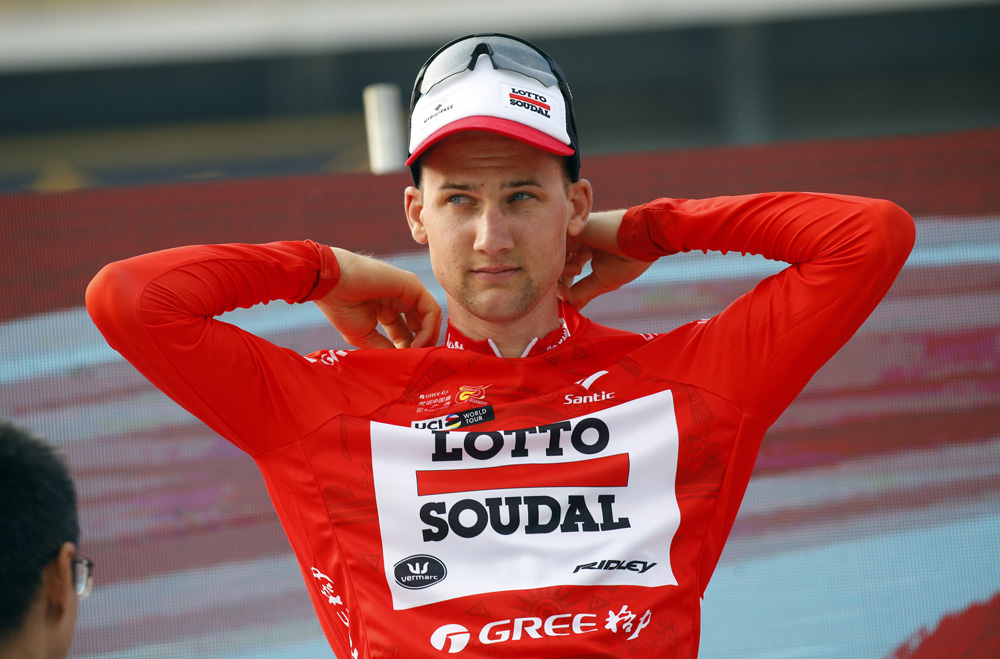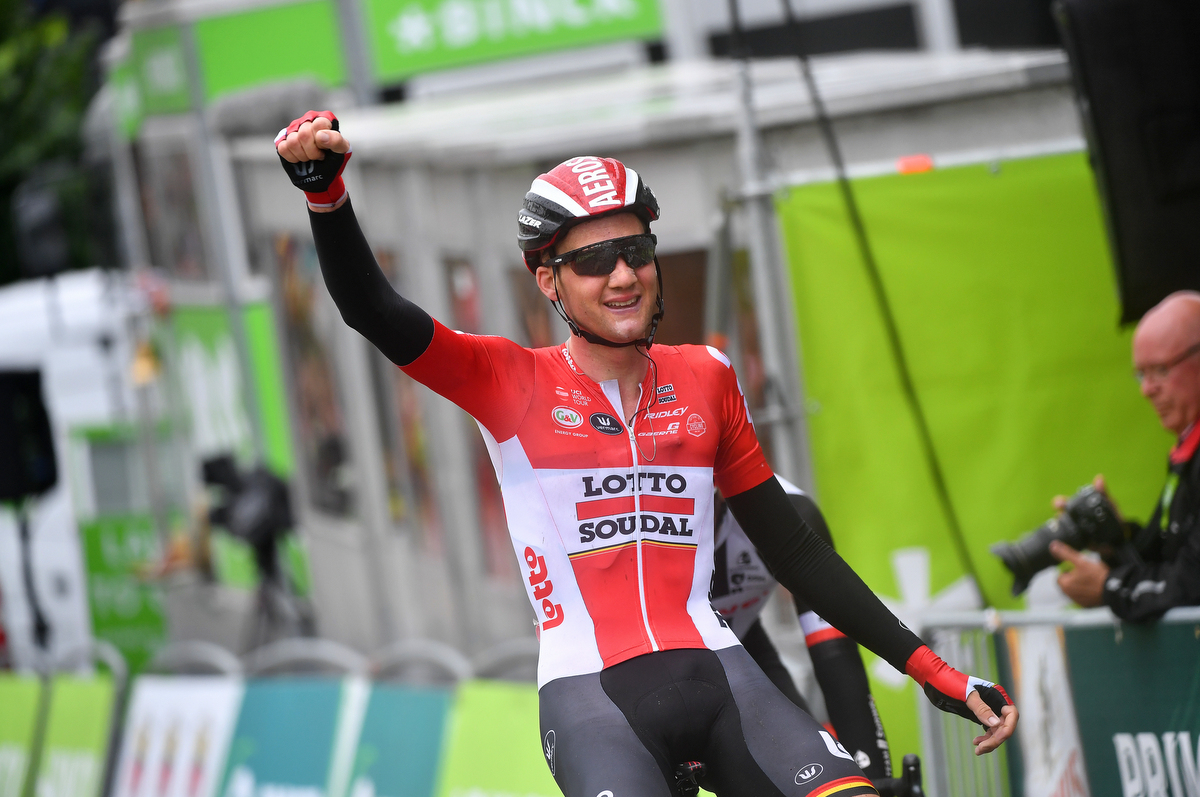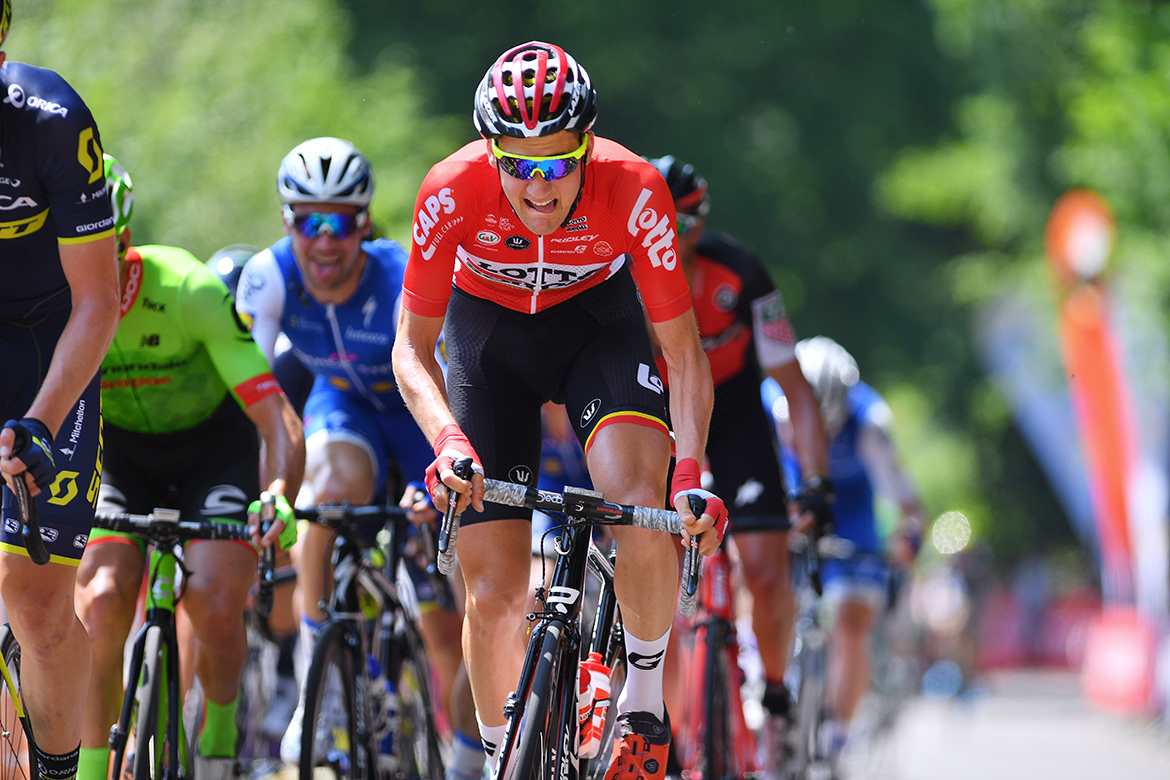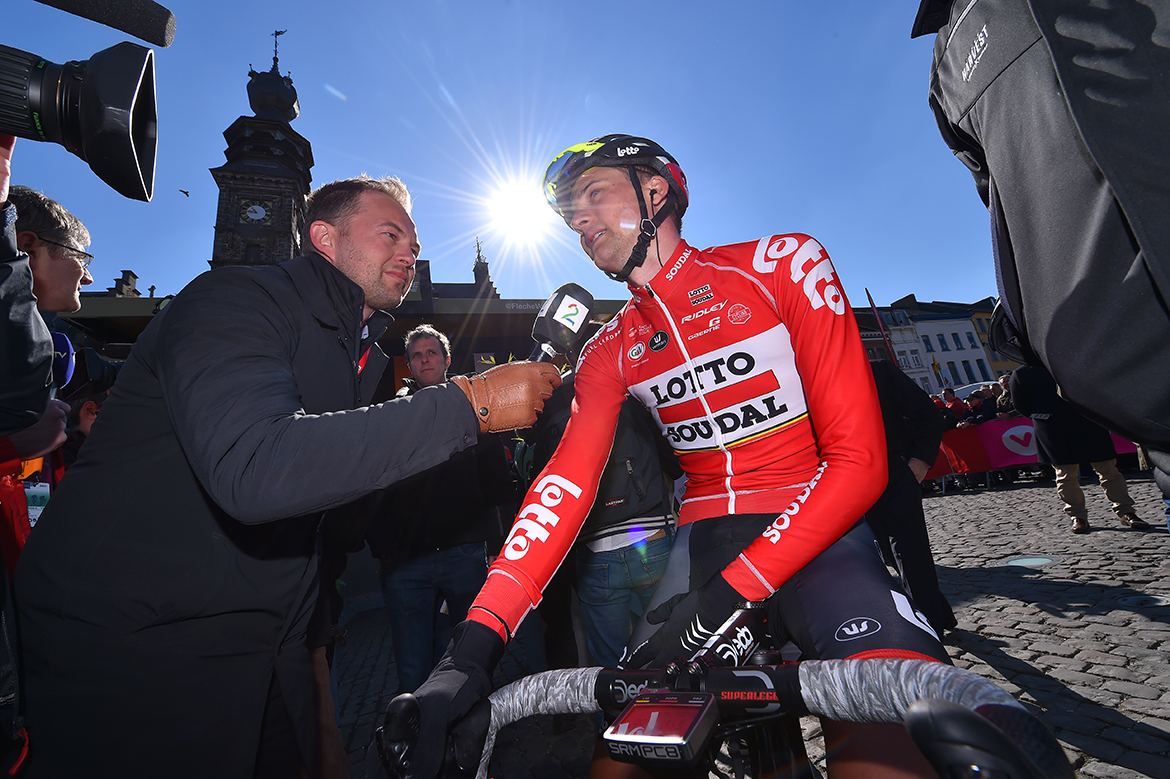Wellens questions use of salbutamol inhalers in cycling
Belgian refused to use inhaler despite suggested 7 per cent breathing capacity increase





Tim Wellens (Lotto Soudal) has expressed his opposition to the use of salbutamol asthma inhalers in professional cycling, revealing that he has refused to use an inhaler despite being told that it could improve his breathing capacity by 7-8 per cent.
The Belgian made headlines during the 2017 Tour de France when he chose to abandon the race through illness rather than avail of a therapeutic use exemption (TUE) for a corticosteroid.
Wellens' comments come in the wake of Chris Froome's adverse analytical finding for salbutamol during the 2017 Vuelta a España. Froome's sample from stage 18 on September 7 showed twice the permitted 1,000ng/ml level of salbutamol. The four-time Tour de France winner has said that he uses an inhaler to treat asthma, and insisted that he did not exceed the permitted dosage on the day in question.
As salbutamol is classed as a specified substance, Froome remains free to race until the case is resolved, though he risks a ban and the loss of his Vuelta a title. To avoid a sanction, Froome and his legal team must convince the anti-doping authorities that he did not exceed permitted dosage and that his sample was skewed by other factors, such as dehydration.
In an interview with RTBF, Wellens has reiterated that stance on TUEs and questioned the prevalence of inhaler use in cycling.
"As a professional rider, I have undergone several tests in hospital," Wellens told RTBF. "I sometimes feel some obstruction in my bronchi, and so I learned that with an inhaler, I could improve my breathing capacity by 7 or 8 per cent. The doctors told me that I could use an inhaler, without any certification.
"But I'm against inhalers. I have no desire to improve my breathing by 7 per cent in that way. And I think that when you start using inhalers, afterwards you don't know how to live without them. I refuse to be dependent on that kind of thing. So I'm clearly against them. But a lot of people use them. If the public knew the number of riders who have an inhaler… it's enormous. And then sometimes, it's also a little bit in the head."
Get The Leadout Newsletter
The latest race content, interviews, features, reviews and expert buying guides, direct to your inbox!
Against obtaining a TUE, making choices in life
Wellens added that his older brother Yannick, a talented amateur, had chosen to stop his cycling career altogether after he was diagnosed with exercise-induced asthma.
"He was given the choice: he could either use products that, in the long-term, could be bad for his health, or he could quit. He decided to quit," Wellens said.
"Sometimes you have to make choices in life. When I was a young rider, I was on a team where five of my seven teammates had an inhaler. I can accept that a person might need an inhaler, but not five people out of seven."
In the interview with RTBF, Wellens revisited his decision to abandon the Tour de France on stage 15 rather than avail of a TUE for a corticosteroid to treat a breathing problem provoked by sunstroke. He also revealed that, at the beginning of 2017, he had already considered signing and publishing a pledge not to use TUEs.
"I would like things to be black or white, and not grey," Wellens said. "We all know that a product like cortisone – which is in the grey area – gives many benefits in terms of physical performance. When riders use it, it's obviously annoying. It's called… cheating. Sometimes, when you're sick, you don't have a choice and you must use it. but you can also always decide to quit [the race – ed.]"